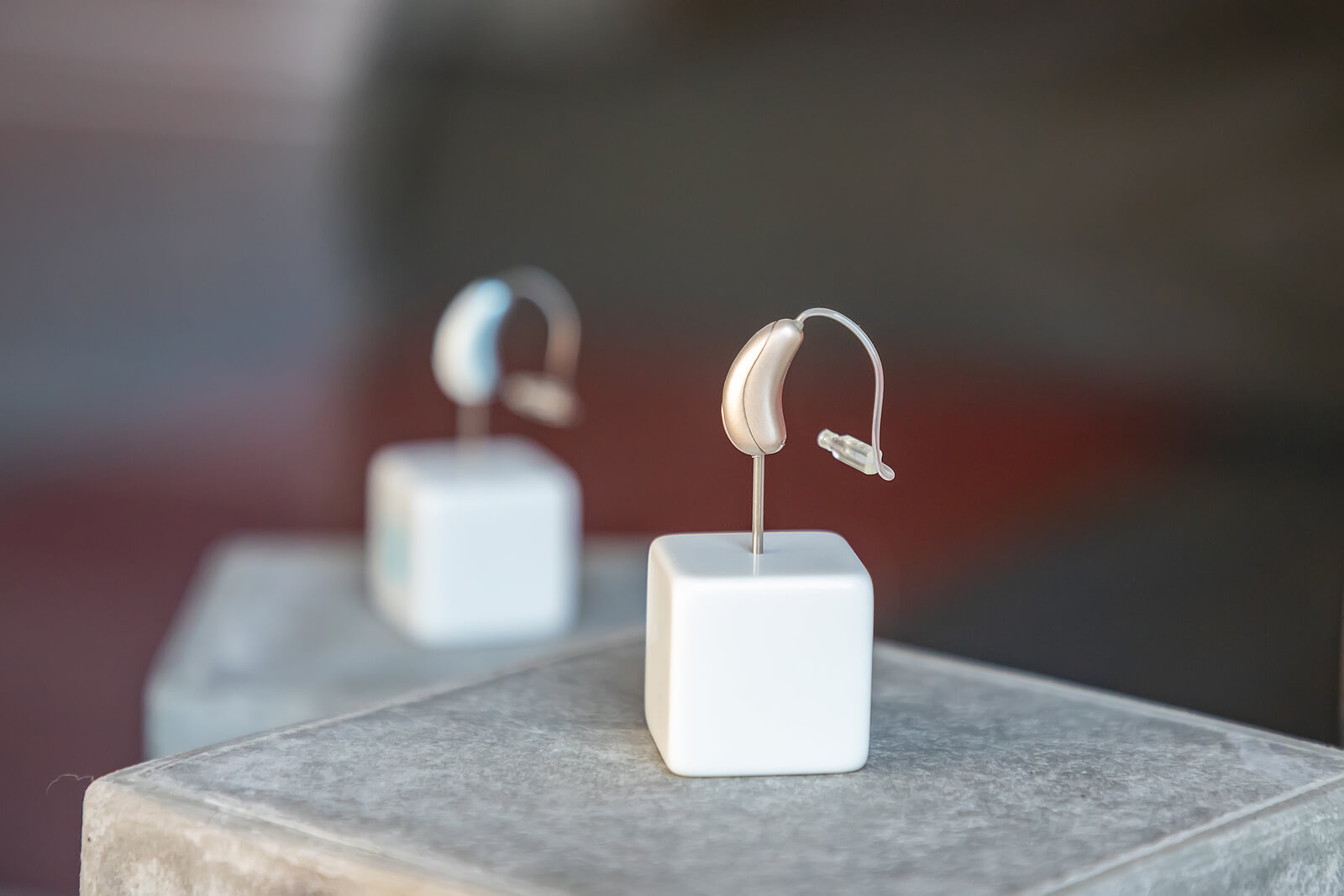
Hearing Aid Overview
Choosing the Perfect Hearing Aid for You
Comfort and Lifestyle Are Key
The best hearing aid for you is one that not only provides comfort but also seamlessly fits into your lifestyle. Today, the hearing aid market offers hundreds of options, ranging from comfortable and nearly invisible devices to those that deliver high-fidelity sound quality. Some even offer extended wear capabilities, allowing you to leave them in for months, and they can wirelessly connect to your TV through your smartphone, effectively transforming your hearing aids into headsets.
Hearing aid styles include traditional and mini behind-the-ear (BTE), receiver in the ear (ITE), receiver in the canal (ITC) or receiver in the canal (RIC), receiver in the ear (RITE), and receiver completely in the canal (CIC).
So, which hearing aid is the right fit for you? We're here to assist you! We can help you select hearing aids that suit the environments you frequent, your lifestyle, and your budget. We will not only fit, adjust, and program your hearing aids but also ensure you experience the best possible hearing. The right hearing aids can truly transform your life.
Make an appointment for a hearing assessment today to discuss which hearing solution aligns with your needs.
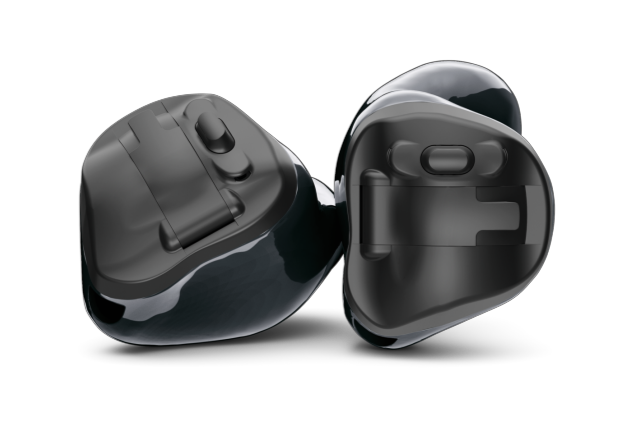
Understanding How Hearing Aids Function
Hearing aids employ small microphones to capture sounds. These devices also incorporate a computer chip that receives, analyzes, and adjusts incoming sound based on your specific hearing loss. You receive the processed audio signals through miniature speakers in your ears.
Choosing the right hearing aid for you depends on several factors, including the severity of your hearing loss, the listening environments you frequent, your level of activity, and your comfort with using technology.
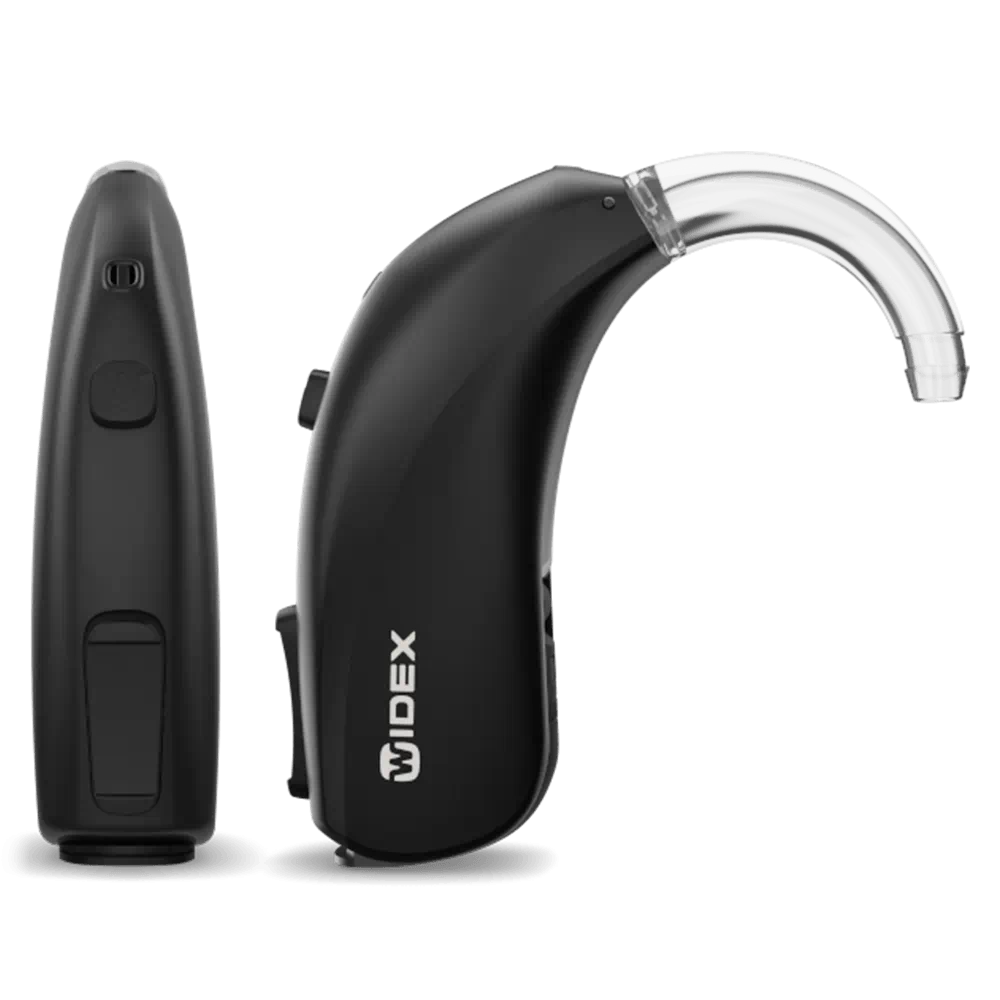
Selecting the Right Hearing Aids
During your hearing evaluation, we will engage in a comprehensive discussion with you to pinpoint the nature of your hearing issues. We will inquire about the onset of your hearing loss and inquire about any associated symptoms such as tinnitus (ringing in the ears) or dizziness. Additionally, we will conduct hearing tests to gather essential data.
Based on your responses and the test results, our highly skilled hearing experts may recommend a visit to a medical doctor for further examination and potential treatment. If your tests reveal sensorineural hearing loss, indicating damage to the inner ear or nerves connecting the cochlea to the brain, we may suggest hearing aids as an appropriate solution.
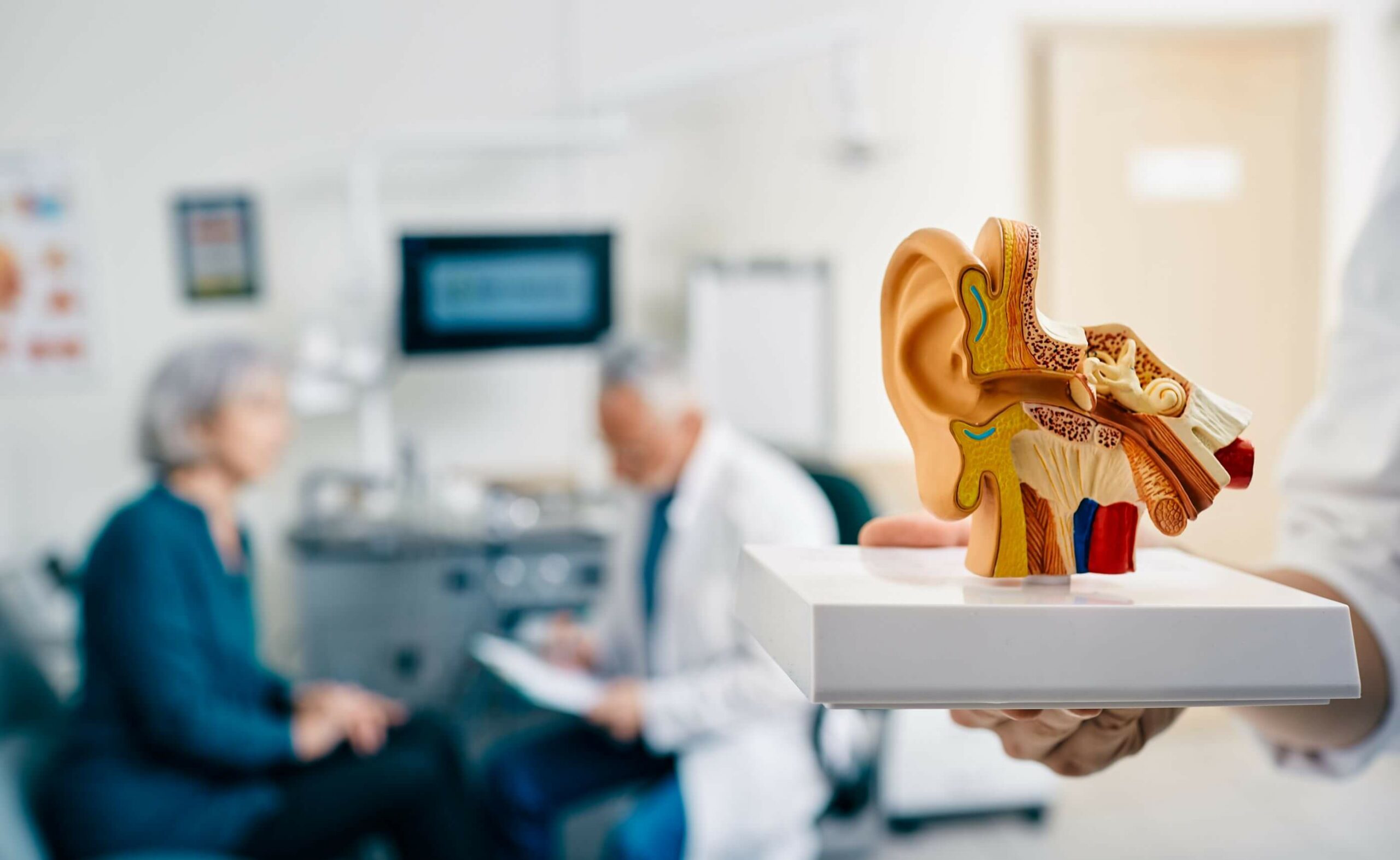
Hearing Aid Evaluation
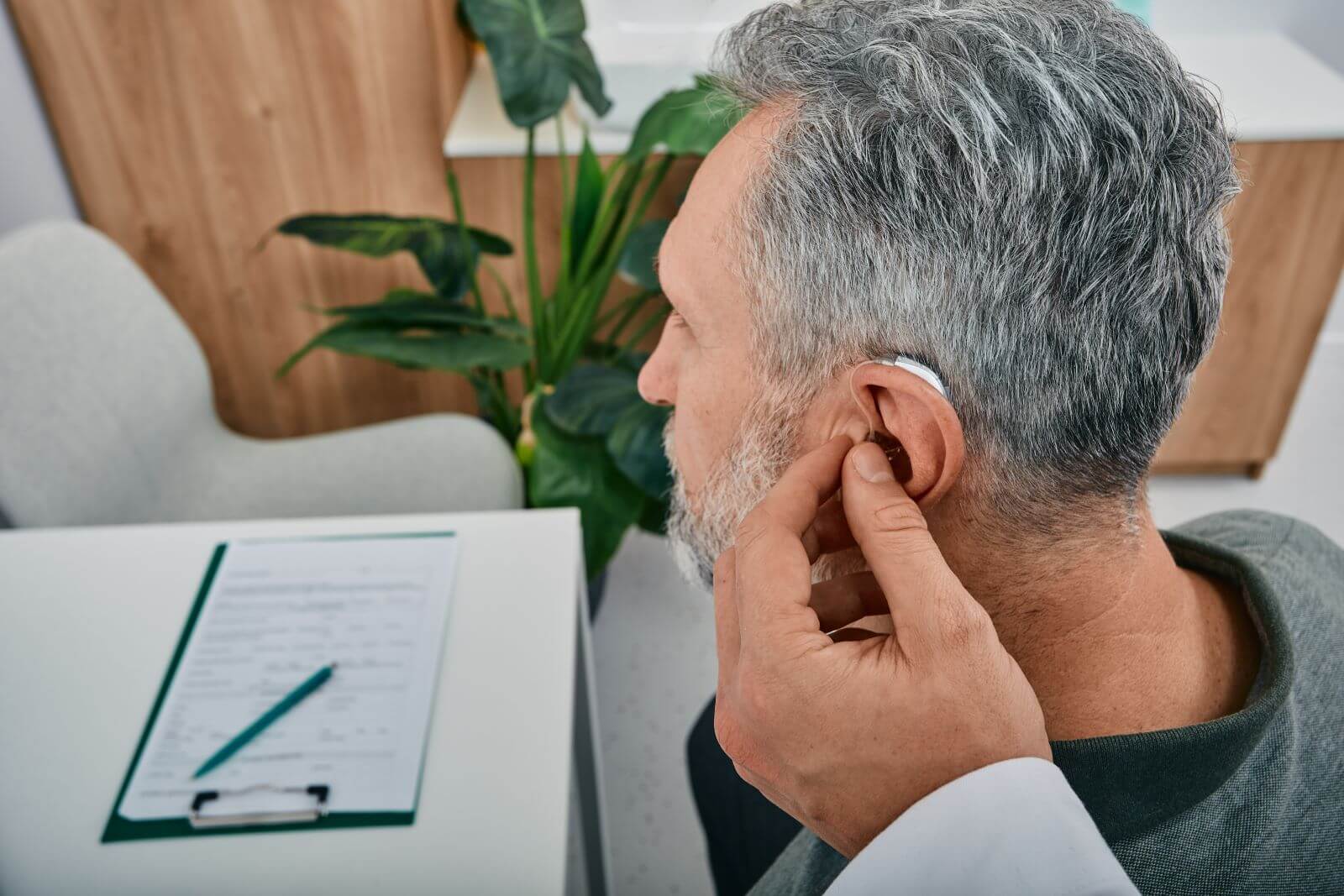
Hearing Aid Fitting
During the hearing aid fitting process, we will program the device to meet your specific needs. We will provide you with instructions on how to insert and remove the hearing aids, replace batteries, and maintain and clean the devices.
We will also discuss how your lifestyle influences the functionality of your hearing aids and how to maximize their benefits.

One Hearing Aid vs. Two Hearing Aids
Humans have two ears for a reason, and if you have hearing loss in both ears that can be improved with hearing aids, we strongly recommend using two. Wearing two hearing aids offers several advantages:
- Improved hearing in noisy settings.
- Enhanced sound localization.
- Better speech understanding, even at a distance.
- Improved ability to detect soft sounds at lower levels.
- More natural and immersive sound quality.
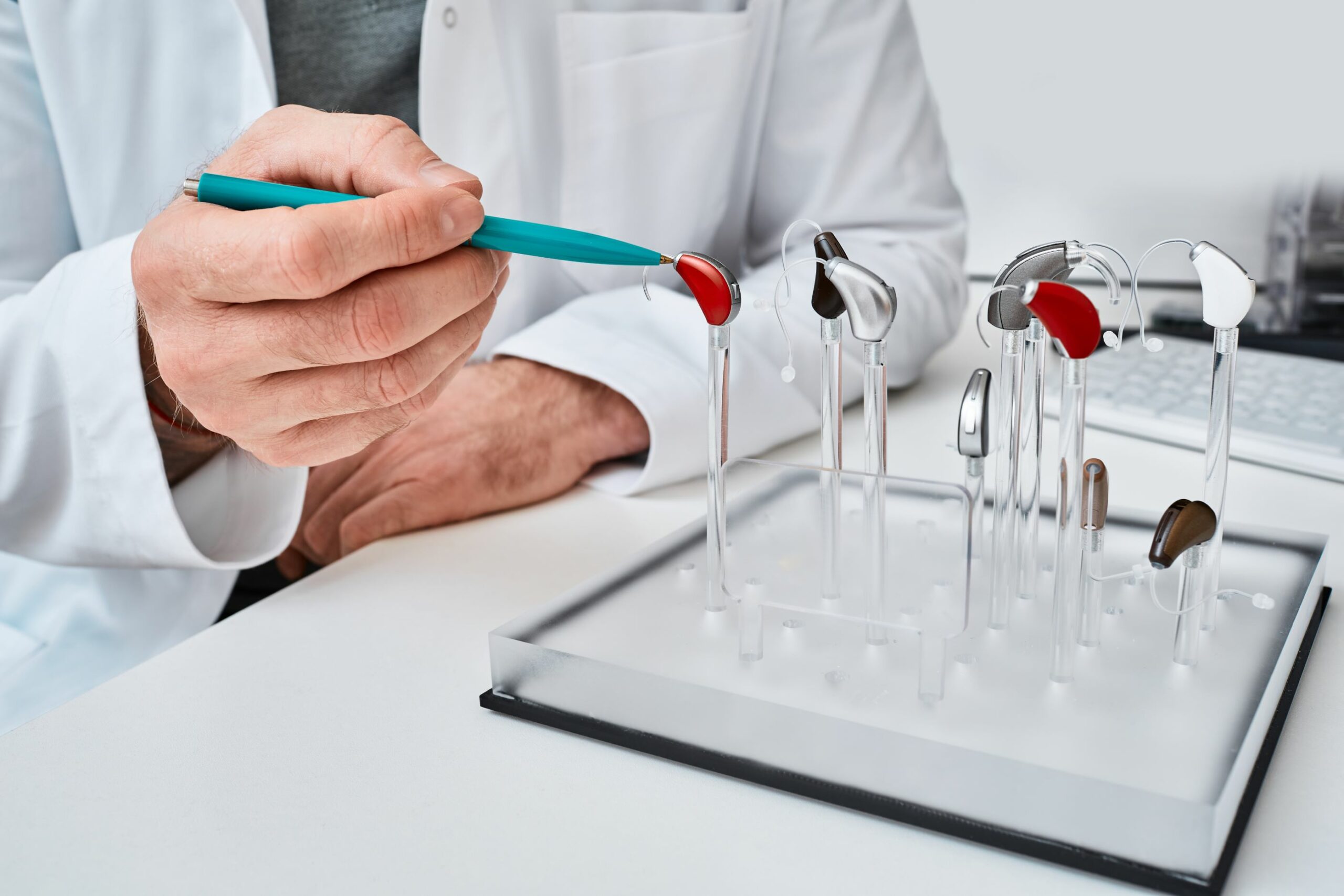
Selecting the Best Hearing Aid Brands
We have meticulously chosen a select group of hearing aid manufacturers known for their excellence. Our commitment to offering only the best hearing aids stems from our desire to enhance your quality of life.
Contact us for a free demo to discover which hearing aid type and brand best align with your individual needs.
Optimizing Your Hearing Aid Experience
Hearing aids perform optimally when they are fitted and adjusted to your liking. Therefore, it's essential to seek professional services for this purpose. Hearing aids should be comfortable and effectively amplify sound. If you encounter any issues with your hearing aids, don't hesitate to return them to us for adjustments.
While hearing aids can significantly improve your hearing, they do not provide "perfect" hearing. They serve as an "aid" to enhance your hearing ability. Achieving success with hearing aids depends on our expertise and your attitude.
Hearing loss typically develops over many years. Adapting to the sounds while using hearing aids will take some practice. Your brain will require time to acclimatize to the sounds amplified by your hearing aids. We are here to guide you through this process, so don't get discouraged.
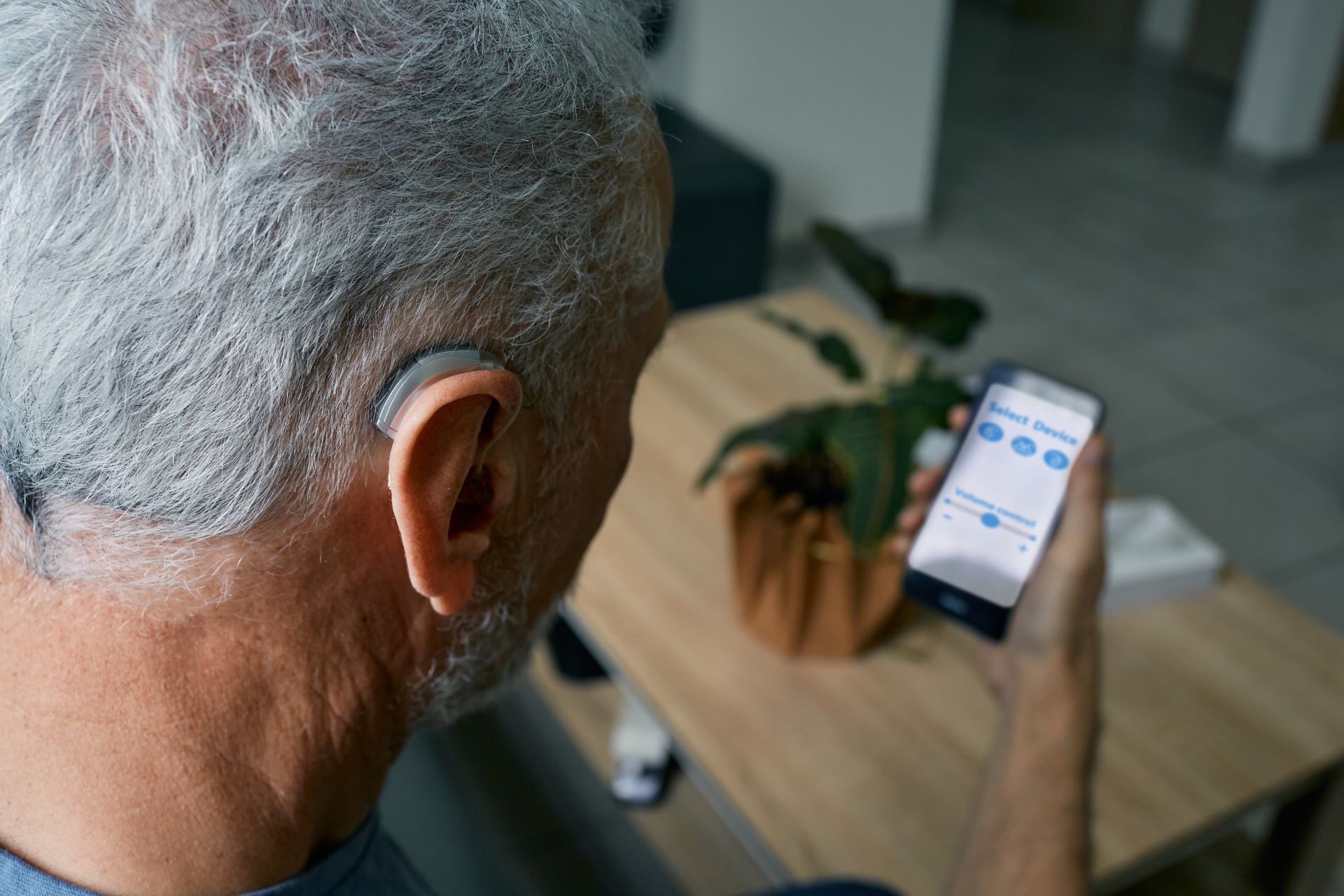
Getting Acclimated to Hearing Aids
Adjusting to your new hearing aids may take just a few days for some, while others may need several weeks or even months. Generally, the greater the hearing loss and the longer it has been present, the more challenging the transition to hearing aids can be. At Expert Hearing Clinic, we help ease you into hearing with hearing aids as well as guiding family members to utilize communication strategies to help ensure a smoother transition.
The longer you live with hearing loss, the more effort it may take to adapt to using hearing aids. Our goal is to make this transition as seamless as possible. Contact us today.

Managing Background Noise
Background noise is a common challenge, affecting everyone at some point, whether or not they use hearing aids. While hearing aids cannot completely eliminate unwanted sounds, there are now hearing aids that amplify the sounds you do want to hear and minimize unwanted sounds.
Research has shown that dual microphones effectively reduce background noise for many people with certain types of hearing loss. We can help you determine the best circuits and microphone options for your hearing loss and communication needs.
The most efficient way to reduce background noise is through the use of assistive listening devices such as FM technology. Feel free to ask us how this technology can work with your hearing aids to improve your ability to hear in challenging listening situations.
How much do hearing aids cost and whatdoes that cost include?
Hearing Aid PricesThe price of our hearing aids can vary between $2500 to $5000 for a pair of hearing aids.
Breaking down the cost of our hearing aids, the price includes the devices, which range from basic-level technology to premium options, along with a $700 hearing care package. The care package covers verification testing (REM testing), fitting and programming, orientation, a 3-year service plan, a 3-year warranty, and a first-fit care package that includes necessary supplies.

Determining the Cost of Hearing Aids
The cost of hearing aids varies and depends on several factors. The features and functions you desire play a significant role in determining the price of hearing aids. Hearing aids with advanced features designed for active lifestyles or near-invisibility in various listening environments are likely to be more expensive.
Your hearing healthcare professional will recommend features based on your needs, which can influence the cost. For instance, if you lead an active life, dual microphones to improve hearing in noisy environments may be suggested. Many patients find this feature highly satisfactory.
All hearing aids come with an adjustment or trial period, typically lasting 30 days from the date of purchase. During this period, you can visit us for any fitting issues. If, for any reason, you're not satisfied, you can return your hearing aids during the trial period, with a small fitting/restocking fee deducted.
Does Insurance Cover Hearing Aids?
Health insurance plans generally do not cover the cost of hearing aids. However, diagnostic evaluations are covered when ordered by a physician to assist in developing a treatment plan.
Medicare does not typically cover hearing aids for adults, but it may cover the cost of bone-anchored hearing aids (BAHA) if other coverage policies are met. Medicare classifies BAHA as a "prosthetic device" rather than a hearing aid.
For eligible children and young adults aged 21 and under, Medicaid can cover the diagnosis and treatment of hearing loss, including hearing aids, under the Early and Periodic Screening,
Bone Anchored Hearing Aids (BAHA)
Could a bone conduction solution help you?
- Can you only hear from one ear?
- Suffer from discomfort due to your hearing aids?
- Suffer from chronic ear infections?
- Draining ears?
- Do you have malformed ears or ear canals?
If you answered yes to any of these questions, a bone conduction solution may help you.
The Baha System has an external sound processor like a hearing aid that captures the sound in the air, after which the sound is turned into vibration and sent to the bone as our second way of hearing bypassing the parts of the ear that aren’t working.
Try Bone Conduction Hearing in the Office
Try it first, then decide. With the Baha, you have the advantage of trying it first. If you would like to learn more about the Baha system or demo it, please give our office a call and speak to an audiologist today.
Unlike hearing aids, Cochlear Bone Conduction Solutions are covered by Medicare, most insurance plans, and typically Medicaid. Contact your insurance company or our office to determine coverage.

Embark on Your Journey Today
- Contact us, and we'll gladly address your questions about hearing loss and hearing aids.
- Schedule an appointment with our audiologist for a hearing test to determine your suitability for hearing aids.
- If hearing aids are suitable, our hearing specialist will discuss options tailored to your unique hearing profile, lifestyle, preferences, and budget.
- Your new hearing aids will be customized and programmed to deliver optimal hearing, allowing you to reconnect with the people and activities essential to your life.
